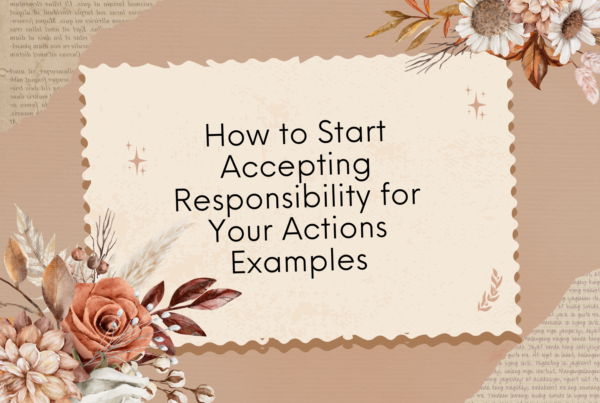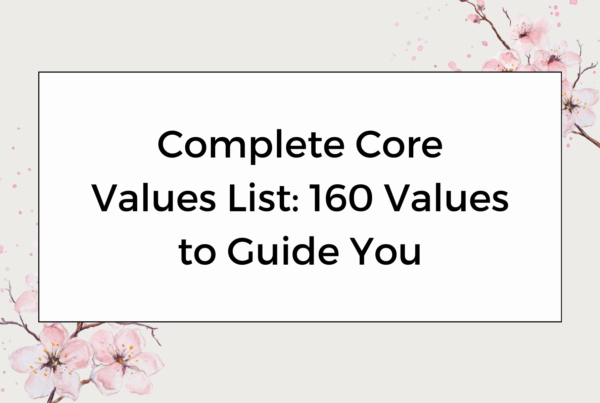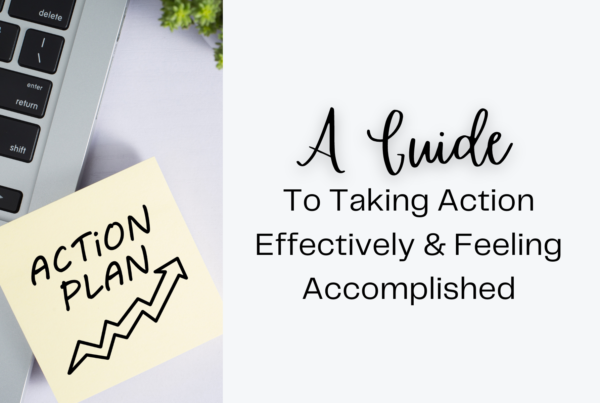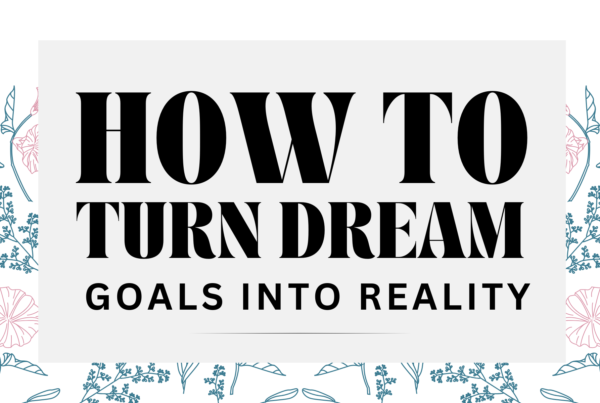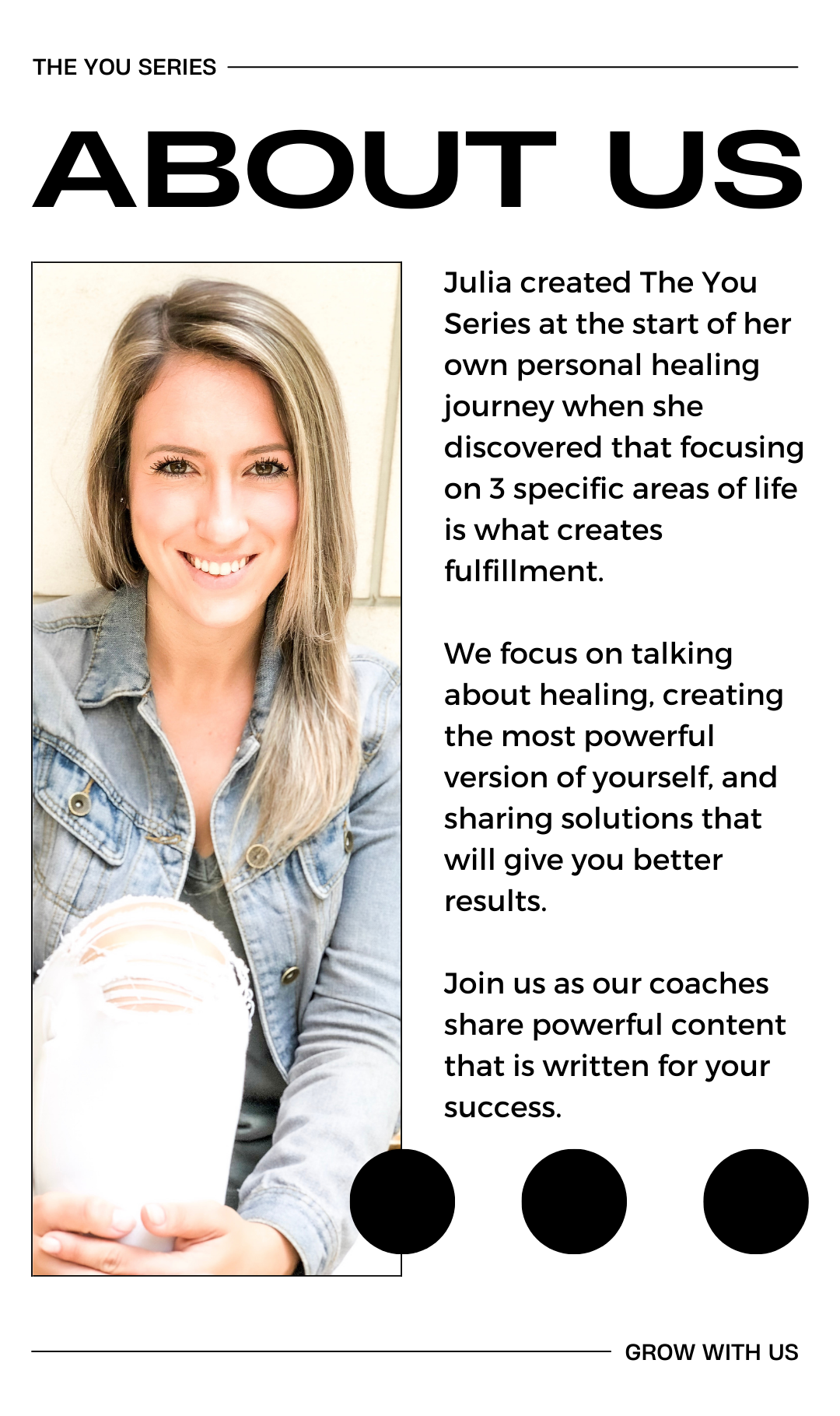Self-awareness is the foundation of personal growth, emotional intelligence, and fulfilling relationships. When you’re self-aware, you can identify your emotions, thoughts, and behaviors, giving you the ability to change patterns that may be holding you back. It’s a skill that allows you to respond to life with intention rather than reacting based on old habits.
In this post, we’ll explore what self-awareness is, why it’s essential, how it builds emotional intelligence, which is essential for holding healthy relationships and navigating your professional life more effortlessly.
JUMP TO SECTION:
Why is Self-Awareness Important?
The Cause and Effect of Lacking Self-Awareness
7 Proven Benefits of Self-Awareness
How Self-Awareness Builds Emotional Intelligence
9 Things You Can Do to Be More Self-Aware
How Self-Awareness Helps with Setting Boundaries
What is Self-Awareness?
Self-awareness is the conscious knowledge of your character, feelings, motives, and desires as stated in the Oxford Language.
This means that you understand:
- Your emotional triggers
- Notice your thoughts as they arise
- Can identify and process your emotions when they come up
- Being mindful of how your actions affect others
- As a result, you can also empathize with others going through something
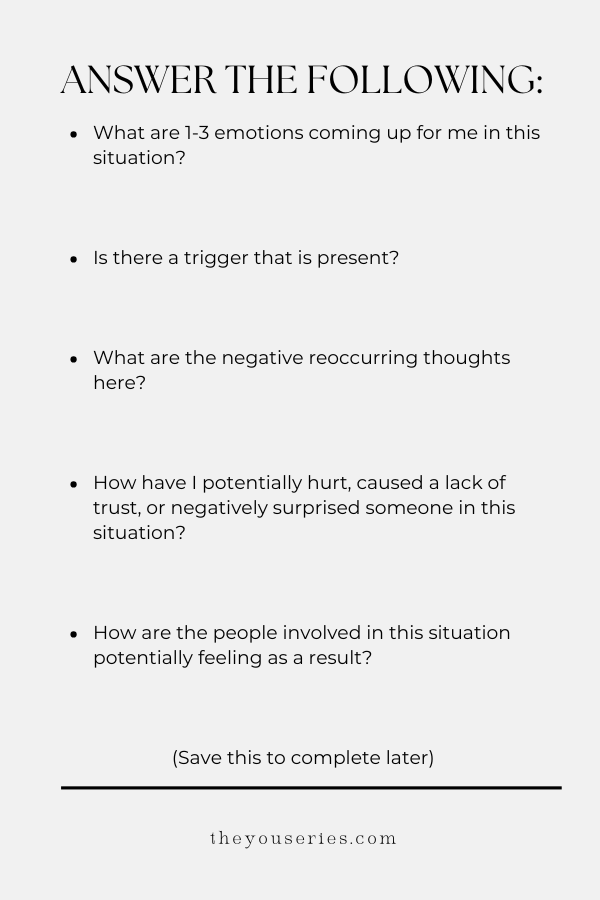
Being self-aware doesn’t mean you’re constantly analyzing yourself, but rather that you’re attuned to your inner world and how it aligns with your outer actions. You’re in observation of how you think and interact with the world around you.
Why is Self-Awareness Important?
When you’re self-aware, you’re able to:
- Make intentional choices: Instead of being driven by automatic reactions, you can pause, reflect, and make conscious decisions.
- Improve relationships: Knowing your emotional triggers and understanding how your behavior affects others helps you navigate relationships with empathy and respect.
- Grow personally and professionally: Self-awareness fosters growth by helping you recognize areas for improvement, build on your strengths, and overcome challenges.
- Build emotional intelligence: Understanding your emotions is the first step to managing them effectively and interacting with others on a deeper, more compassionate level.
- Manage emotions effectively: When you’re aware of your emotional responses, you can regulate them instead of being overwhelmed by them.
- Feel more confident about yourself: When you’re self-aware, you have a clearer understanding of your strengths, weaknesses, and values. This self-knowledge boosts your confidence because you know who you are and what you stand for, allowing you to face challenges with a sense of certainty and purpose.
- Live more authentically: Self-awareness helps you align your actions with your core values and beliefs. This allows you to live a life that feels true to you. This type of authenticity leads to greater fulfillment and personal satisfaction.
Cause and Effect of Lacking Self-Awareness
Lacking self-awareness can manifest in a variety of ways, both in how someone behaves and how they feel internally. Here’s a look at what it looks and feels like:
My challenge to you: I know it’s easy to read lists like this and be like “Yeah not me, I got it figured out.” What I challenge you to start doing as a part of becoming more self-aware is the question “What from this list do I need to improve on?” A huge part of self-awareness is being in search of always bettering yourself.
The Cause: What lacking self-awareness looks like
- Frequent misunderstandings – People who lack self-awareness often have difficulty understanding how their actions and words affect others. This leads to frequent conflicts, misunderstandings, or strained relationships because they don’t realize how they come across.
- Blaming others – When things go wrong, someone without self-awareness might always point the finger at external factors or other people rather than reflecting on their role in the situation. They rarely take responsibility for their actions.
- Inconsistent behavior – Their behavior might change depending on the situation or people they’re with, as they aren’t clear about their values, desires, or boundaries. Often indecisive and confused about what to do they can do one thing but change their mind frequently lacking responsibility. They may act in ways that feel out of alignment with their true selves without realizing why.
- Difficulty handling criticism – People without self-awareness tend to be overly defensive when receiving feedback, viewing it as a personal attack rather than an opportunity for growth. They may lash out, shut down, or make excuses instead of reflecting on the criticism.
- Reacting instead of responding – They often react impulsively in emotionally charged situations without pausing to think. Their reactions may be out of proportion to the event, and they may later regret what they said or did.
- Limited empathy – Without understanding their own emotions, they struggle to relate to or empathize with others. This can lead to shallow or superficial connections in relationships, as they miss emotional cues or fail to respond appropriately to others’ feelings.
- Repeating negative patterns – Because they aren’t aware of their habits or emotional triggers, they might fall into the same negative patterns repeatedly, whether in relationships, careers, or personal growth. They often feel stuck but can’t pinpoint why.
The Effect: What lacking self-awareness feels like
 Confusion or disconnection – Lacking self-awareness often leads to feeling confused about why things happen the way they do, especially in relationships or conflicts. They might feel disconnected from their emotions and have difficulty identifying how they truly feel in a given moment.
Confusion or disconnection – Lacking self-awareness often leads to feeling confused about why things happen the way they do, especially in relationships or conflicts. They might feel disconnected from their emotions and have difficulty identifying how they truly feel in a given moment.- Frustration – There may be an underlying sense of frustration because they don’t understand why things aren’t going their way. This frustration can build up because they may feel like the same problems keep happening without a clear cause.
- Low emotional resilience – They might feel easily overwhelmed by emotions, and unable to effectively manage stress, anger, or sadness. Without insight into their emotions, they may feel like they’re at the mercy of their feelings rather than in control of them.
- Lack of purpose or fulfillment – Without knowing their core values or understanding their true desires, they may drift through life, feeling unfulfilled or purposeless. This can lead to dissatisfaction in work, relationships, and personal growth.
- Being overly sensitive or defensive – Lacking self-awareness often comes with taking things very personally. They may feel easily hurt, slighted, or attacked by others’ comments, even when it’s not meant that way. This hypersensitivity can make everyday interactions feel more challenging than they need to be.
- Stuck in repetition – They may feel like they’re stuck in the same patterns or routines without being able to break free. There’s often a sense of helplessness or lack of control, as they aren’t aware of the role they play in perpetuating these cycles.
- Alienation or loneliness – Without understanding how their behavior affects others, they may unintentionally push people away, leading to feelings of isolation or loneliness. This can make it hard to form meaningful, deep relationships.
Here is a list of questions to ask yourself:
If you answer yes to one or more of these questions there is work to be done in that area of your life. Use this insight as an opportunity to better yourself and your results.
- Frequent miss understandings: Do you find that you have a lot of conflict in your life?
- Blaming others: I know you’re probably thinking of that one person, but just remember this is about questioning your thoughts. When something happens in your life, do you find yourself blaming others?
- Inconsistent behavior: Are you good at making decisions and seeing your commitments through?
- Difficulty handling criticism: What do you do when there is conflict? Do you get defensive and shut down the conversation? Or do you hear the other person out and are willing to genuinely apologize if you hurt them, learn from your mistakes, and find a solution?
- Reacting instead of responding: Do you do things or say things when you’re emotionally charged, angry, or upset? Or do you wait till you’re calm and you’ve thought about what you’re feeling and what you’re going to say?
- Limited empathy: Do you find people share about what they’re going through and you feel a connection with with, finding yourself not knowing what to say? Do you have deep connections with people close to you or is it mostly just surface?
- Repeating negative patterns: Are you feeling stuck in your life? Like nothing seems to go right for you?
- The effect of lacking self-awareness: Do you often find yourself feeling confused or disconnected, frustrated, having low emotional resilience, a lack of purpose or fulfillment, being overly sensitive or defensive, like you are stuck in repetition and alienated or lonely?
Overall Experience of Lacking Self-Awareness:
Someone without self-awareness might feel like life is happening to them rather than having agency over their choices, emotions, and actions. The lack of understanding of why they feel or act a certain way can lead to a sense of helplessness, frustration, and difficulty connecting meaningfully with others. They may also struggle to grow, as they are not able to reflect on their experiences and learn from them.
This lack of insight can lead to a cycle of negative outcomes that feel both confusing and hard to escape.
7 Proven Benefits of Self-Awareness
1. Improved Emotional Regulation
Self-awareness helps you recognize and understand your emotions in real-time, which allows you to manage them effectively. Instead of being controlled by impulsive reactions, you can choose how to respond in stressful or challenging situations. This emotional control leads to better mental health and reduces stress. Understanding your emotions is just the beginning, what follows is learning how to process what you’re feeling and healing it. What’s the point of letting negativity bog you down?
2. Stronger Relationships
When you’re self-aware, you better understand how your behavior and emotions impact others. This awareness leads to healthier communication, greater empathy, and fewer misunderstandings, helping you build more fulfilling and supportive relationships. Having the capacity to understand your behavior and emotions lets you get in front of them, being more intentional about the results you desire.
3. Enhanced Decision-Making
Self-awareness allows you to understand your core values, goals, and motivations. This clarity leads to more thoughtful decision-making because you can align your choices with what matters most to you, resulting in greater life satisfaction and fewer regrets.
4. Greater Accountability and Growth
With self-awareness, you can take responsibilityfor your actions and learn from your mistakes. By recognizing areas where you need improvement, you foster personal growth and avoid repeating negative patterns. This accountability promotes continuous self-improvement and long-term success.
5. Increased Empathy
Understanding your own emotions and triggers enables you to better understand the feelings and perspectives of others. This empathy helps you relate to people on a deeper level, improving your social interactions and emotional intelligence.
6. Improved Mental Health
Being aware of your thoughts and feelings helps you identify negative patterns that may contribute to anxiety, stress, or depression. Self-awareness allows you to address these issues before they become overwhelming, leading to better emotional resilience and overall mental well-being.
7. Boosted Confidence and Authenticity
Self-awareness helps you embrace your strengths and accept your weaknesses, leading to greater self-confidence. You can live more authentically, as you’re in tune with who you are and what you stand for. This authenticity fosters personal fulfillment and stronger connections with others.
Together, these benefits show how self-awareness can transform both your inner world and your relationships, empowering you to live with more intention, empathy, and emotional intelligence.
Who benefits from your growth in self-awareness?
- You do
- Your family does
- Friends
- Co-workers
- Your career/business
Not only does your inner world change but how you see the outer world changes too. You’ll begin to see people for who they are, start to hear what they mean not what your projection of what they’re saying tells you.
Are you new here?
I also have the following content that focuses on helping you get out of your way, build confidence & guide you toward taking effortless action:
- CORE VALUES: Learn More About Your Personal Core Values
- Manifestation Is Logical, Not Magical. You Already Do It Daily On Autopilot!
- Defining What It Means To Take Responsibility In Your Life
- Top Tips On How To Successfully Start Setting Intentions That Work For You
- Reduce Regret And Turn Your Past Into Powerful Lessons Learned In Life
- 7 Inspirational Short Quotes About Life: That Call Out For Abundance
- What is Self-Love and Everything You Need to Know to Improve Self-Love
Build More Confidence:
- How Taking 100% Responsibility Will Give You More Confidence
- Top Self-Trust Tips That Increase Your Confidence
- The Ultimate Guide To Feeling Confident About Who You Are!
Build Better Relationships:
How Self-Awareness Builds EQ
Emotional intelligence (EQ) is the ability to recognize, understand, and manage your own emotions, as well as to recognize and influence the emotions of others. Developing self-awareness is the first and arguably the most important step in building emotional intelligence. Here’s how they are connected…
Recognizing Emotions in Real-Time
Self-awareness allows you to identify and label your emotions as they arise, rather than being swept away by them. When you can name what you’re feeling—whether it’s frustration, anxiety, excitement, or joy—you gain control over how you express those emotions. This is crucial to emotional intelligence because it prevents emotional outbursts and promotes thoughtful responses instead of impulsive reactions.
For example, if you’re feeling frustrated in a conversation, self-awareness helps you pause and acknowledge the frustration. From there, emotional intelligence enables you to calmly express what’s bothering you instead of snapping, getting defensive, or shutting down.
Most arguments happen due to the lack of self-awareness, two people understand each other, they’re saying different things, but they would both like to ultimately be understood.
Understanding Emotional Triggers
Emotional triggers are specific situations, words, or behaviors that provoke a strong emotional response. Self-awareness helps you recognize your triggers—whether it’s feeling disrespected, unheard, or judged—so that when they occur, you can manage your reaction. The more aware you are of your triggers, the better equipped you are to handle difficult emotions and stay grounded, a core aspect of emotional intelligence.
Over time, self-awareness allows you to shift from being triggered by external situations to responding with clarity and composure. This also enhances your capacity for empathy by helping you see when someone else is reacting based on their triggers.
Managing Your Emotions
Once you’re aware of your emotions, emotional intelligence involves managing them effectively. Self-awareness is the key to this because you can’t manage what you don’t recognize. When you’re aware of a rising emotion—like anger or frustration—you can take steps to calm yourself before responding. Whether it’s through deep breathing, taking a break, or reframing the situation, self-awareness empowers you to choose how you respond rather than reacting automatically.
Building Empathy
Empathy is a cornerstone of emotional intelligence, and it begins with self-awareness. When you understand your own emotions and reactions, you become more attuned to what others might be feeling. You’re better able to put yourself in someone else’s shoes because you recognize common emotional experiences. This makes you more compassionate, patient, and effective in your communication, as you can see beyond surface-level behavior and understand the emotions driving others.
Improving Self-Regulation
Self-regulation is the ability to control or redirect disruptive emotions and impulses. With self-awareness, you become more aware of when you’re about to lose your cool or make a rash decision. You can catch yourself in these moments and choose a different, more measured response. This ability to self-regulate strengthens relationships and reduces conflicts, making it a key element of both self-awareness and emotional intelligence.
Enhancing Social Awareness and Relationships
Social awareness, another component of emotional intelligence, involves being able to understand and empathize with the emotions of others. The more self-aware you are, the more you’re able to tune into the feelings and perspectives of those around you. When you understand your emotional landscape, you can better interpret and respond to others’ emotional cues, creating deeper connections and improving communication.
In professional and personal settings, this level of emotional insight helps resolve conflicts, improve collaboration, and create an atmosphere of trust.
9 Things You Can Do to Be More Self-Aware
Self-awareness is a lifelong practice, it doesn’t happen overnight and it doesn’t stay if you don’t prioritize it as something that’s important to you.
As a result of my upbringing, on my growth journey, I’ve realized that self-awareness is incredibly important to me. Not only do I feel most alive when I’m being self-aware but I also am drawn to making friendships with self-aware individuals. I find my energy drops when I’m around someone who’s blaming, judging or just being dismissive in general. The common denominator always seems to be “They are incredibly self-aware” or “This person completely lacks being self-aware.”
Here are some practical ways to develop more awareness and, in turn, build your emotional intelligence:
1. Practice Mindfulness
Mindfulness is the art of paying attention to the present moment without judgment. By practicing mindfulness, you become more aware of your thoughts, feelings, and sensations as they occur. Try starting with simple practices like mindful breathing, body scans, or mindful walks. Over time, you’ll notice you’re more in tune with how you feel in various situations.
2. Know Your Core Values
Core values are pretty big around here. Understanding your core values is key to knowing yourself, and building your confidence. Your values are the guiding principles that shape your decisions, relationships, and how you live your life. Take time to reflect on what truly matters to you. Ask yourself:
- What principles do I stand by, even when it’s difficult?
- When am I most at peace or fulfilled?
- What do I feel passionate about?
Once you identify your core values, examine whether your actions align with them. If you value honesty but find yourself avoiding difficult conversations, for example, it’s a sign that self-awareness can help you course-correct. Living in alignment with your values brings a deep sense of authenticity and fulfillment.
3. Take Responsibility for Your Actions
Self-awareness also includes owning your behavior and choices. When something doesn’t go as planned, resist the urge to blame external factors or others. Instead, ask yourself what role you played in the outcome. Taking responsibility means acknowledging mistakes or unproductive habits without self-judgment but with a commitment to learn and grow from them.
4. Stop Taking Everything Personally
A key aspect of self-awareness is learning to differentiate between what’s about you and what’s about the other person. Not every criticism, action, or comment is a reflection of your worth. When you stop taking things personally, you become less reactive and more curious about others’ perspectives.
Ask yourself:
- Is this person projecting their own issues onto me?
- How can I respond with empathy rather than defensiveness?
- What is the lesson I can take from this, if any?
By reframing negative situations, you take the focus off how you’re being perceived and put it on what you can control: your own response.
5. Keep a Journal
Writing down your thoughts and feelings can help you process your emotions and gain insight into your patterns. Journaling is a great self-love practice that will help you become more in tune with yourself. Try reflecting on your day in a journal. What went well? What triggered certain reactions in you? Are there any recurring thoughts or behaviors you notice? Over time, journaling can help you track your growth and see where you want to improve.
6. Ask for Feedback
Often, others can see our blind spots better than we can. Ask trusted friends, family, or colleagues for feedback on how they perceive you in certain situations. Be open to what they have to say and consider their input without defensiveness. Remember, the goal is to become more aware, not to seek validation.
7. Pay Attention to Your Triggers
We all have emotional triggers—situations or people that provoke strong reactions. Becoming aware of your triggers is essential for self-awareness. When you feel anger, frustration, or anxiety arise, pause and ask yourself what might be underneath that reaction. Is it an unmet need, fear, or past hurt? Understanding your triggers can help you respond with more compassion and control.
8. Practice Active Listening
Becoming self-aware also means being aware of how you interact with others. Practice active listening by fully focusing on what the other person is saying, rather than formulating your response while they talk. Notice your reactions—are you quick to interrupt or defend yourself? Cultivating active listening improves both self-awareness and communication skills.
9. Take Personality and Emotional Intelligence Assessments
Learn about yourself by taking a variety of free online assessments. This will help you learn about how you can be more efficient, and thrive in your day-to-day life. We are all very different. By learning these tools you also get an insight into how different the people around you are as well.
See assessments like:
- The Myers-Briggs Type Indicator (MBTI)
- My Enneagram
- Emotional Intelligence (EQ)
- Self-awareness test
- Personality Styles
These tests can offer insight into your personality traits and emotional patterns. While these tools aren’t definitive, they can help you understand yourself better and spark reflection on areas of personal growth.
How Self-Awareness Helps with Setting Boundaries
Self-awareness is key to understanding your limits and effectively setting boundaries. Without self-awareness, it’s easy to let others overstep or influence you in ways that may leave you feeling drained, frustrated, or even resentful.
Builds your compass for personal boundaries:
Clarifies Your Limits: It helps you identify what feels right for you and what doesn’t. By understanding your emotional, mental, and physical needs, you can clearly define where your boundaries should be. This clarity makes it easier to recognize when someone is crossing a line and helps you prevent burnout, feeling unsafe, emotionally exhausted, and on alert with people in your life.
Empowers You to Say “No”: Many people struggle to say “no” because they fear conflict or disappointing others. Self-awareness gives you the confidence to prioritize your well-being without guilt. When you are aware of your values and needs, saying “no” feels more like an act of self-respect rather than a source of anxiety.
Builds Self-Respect: Setting boundaries reflects how much you value yourself. When you are self-aware, you understand that protecting your energy, time, and emotions is not selfish—it’s necessary for your well-being. This fosters greater self-respect and reinforces your commitment to taking care of yourself.
Prevents Emotional Overwhelm: Being self-aware means you’re more in tune with how certain situations, people, or environments affect your emotions. If you sense early on that something is crossing your boundary, you can take action to address it before it escalates into overwhelm or frustration. This helps you stay emotionally balanced and avoid unnecessary stress.
Assists with communicating boundaries:
Improves Communication: Self-awareness enhances your ability to communicate your boundaries with confidence and clarity. When you know why a boundary is important to you, it’s easier to explain your reasoning to others, helping them understand and respect your limits.
Helps Manage Relationships: Healthy boundaries are essential for feeling confident in relationships, and self-awareness is the first step to maintaining them. You’re more likely to engage in relationships that respect your boundaries and walk away from those that don’t, allowing for deeper connections based on mutual respect and understanding.
The more you know about yourself, the more this helps you define and maintain boundaries that protect your mental and emotional health. It empowers you to confidently navigate relationships and life situations, ensuring you remain aligned with your values and needs.
Start With This Simple Daily Practice
A simple daily self-awareness practice is to set aside 5-10 minutes for mindful reflection, either at the beginning or end of the day. Here’s a straightforward routine you can follow:
1. Find a Quiet Space
Choose a calm, quiet spot where you won’t be interrupted.
2. Start with Deep Breathing
Take a few slow, deep breaths to ground yourself and clear your mind. Focus on your breath as it comes in and out, letting go of any tension.
3. Check In with Your Emotions
Ask yourself, “How am I feeling right now?” Try to identify the specific emotions you’re experiencing, whether it’s stress, joy, frustration, or contentment. Don’t judge or try to change the emotions—just notice them.
4. Reflect on Your Day (or Intentions for the Day)
- If it’s morning: Think about the upcoming day. Ask, “What do I want to accomplish today?” and “What emotions or behaviors should I be mindful of?”
- If it’s evening: Reflect on your day by asking, “What went well today?”, “What didn’t go as planned?”, and “How did I react to situations?”
5. Identify Patterns
If something triggered a strong emotion during the day, try to recognize the cause. Ask, “Why did I feel that way?” This will help you become aware of emotional triggers and patterns in your thoughts or behavior.
6. Set a Small Intention for Tomorrow
To reinforce self-awareness, set a simple goal for the next day. It could be as small as staying calm in stressful moments, listening more attentively, or pausing before reacting to emotional situations.
7. End with Gratitude
Close your practice by noting one thing you’re grateful for. Gratitude helps shift your focus toward positive awareness and reinforces emotional balance.
Optional: Journal Your Reflections
Write down your thoughts, feelings, and insights. Journaling can deepen the practice and provide a way to track your self-awareness growth over time.
This simple routine can help you become more in tune with your emotions, thoughts, and actions each day, building your self-awareness gradually.
How a Life Coach Can Help
Becoming more self-aware can be challenging, but you don’t have to do it alone. Working with a life coach can provide valuable guidance and support as you explore your thoughts, emotions, and behaviors. Here is how a life coach can help.
A fresh perspective:
- Unbiased Perspective: A life coach offers a neutral, objective view of your experiences, helping you see things you might miss or overlook. They point out the recurring patterns and then offer insights that empower you to grow.
- Accountability: Life coaches help keep you on track by encouraging you to stay committed to your goals. Bringing to the surface what seems to hold you back. They hold you accountable for reflecting on your actions, emotions, and progress, ensuring that you stay consistent in your efforts.
- Customized Tools and Strategies: Life coaches can provide personalized exercises and practices tailored to your unique needs. Whether it’s mindfulness techniques, journaling prompts, or reflective questions, these tools help you deepen your self-awareness and create lasting change.
- Safe Space for Exploration: A life coach creates a supportive and non-judgmental space for you to explore your inner world. You can openly discuss challenges, emotions, and triggers without fear of criticism, allowing for deeper self-reflection and personal discovery.
- Improving Emotional Intelligence: As you work with a life coach to increase self-awareness, you also enhance your emotional intelligence. With their guidance, you’ll learn to manage your emotions more effectively, improve your relationships, and gain a better understanding of your impact on others.
- Goal Setting and Growth: Helping you set specific, achievable goals around self-awareness. Whether it’s becoming more mindful of emotional triggers, improving communication, or working through limiting beliefs, they guide you step-by-step to reach your personal and professional milestones.
Accelerate Your Journey With Support:
Working with a life coach accelerates your journey toward greater self-awareness and confidence through accountability. This will help you unlock your full potential, to become free from negative thoughts and emotional burdens. This experience can set you on your path to leading a more intentional, emotionally intelligent life.
Ready to deepen your
self-awareness and live with confidence?
Take the first step toward your transformation!
How we understand ourselves shapes every aspect of our lives. By building self-awareness, you’ll navigate life’s challenges with clarity and control. If you’re ready to embrace intentional living and unlock personal fulfillment, get started below. Together, we’ll develop the self-awareness needed for lasting transformation.

Julia Maria Nica
Your Transformation Guide
Julia grew up in Vancouver, B.C. She immigrated from Romania to Canada in the ’90s with her family. Julia decided to find her passion. Just like many women, she experienced her own self-image challenges. She came up with the idea of The YOU Series as a part of unraveling the pain of her life. Today she focuses on building The You Series, coaching her clients, and creating new content.








